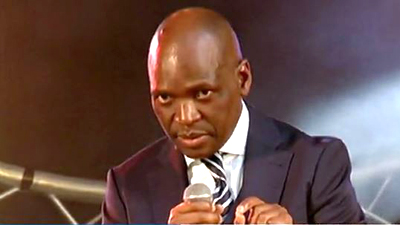Former South African Broadcasting Corporation (SABC) Chief Operating Officer (COO), Hlaudi Motsoeneng is indebted with four bonds. This is according to the SABC which wants its Pension Fund to continue holding on to Motsoeneng’s payout.
The SABC was arguing in the High Court in Johannesburg that they want the payout to be withheld because Motsoeneng has failed to give alternative security. The public broadcaster’s attorney, Advocate Terry Motau, also argued that Motsoeneng has four bonds and has not been gainfully employed for a while.
The SABC obtained an urgent interdict preventing the SABC Pension Fund from paying out its former COO. The case sitting in the High Court on Thursday sought to obtain an interim interdict while the court case on the monies allegedly owed to the SABC by Motsoeneng is pending.
The SABC wants a total of R21 million from Motsoeneng due to a litany of accusations against him. However, in this particular case it is focusing on the R11.5 million “success fee” which he got after closing a deal with MultiChoice.
The SABC argued that Motsoeneng’s contract never entitled him to that kind of benefit and it was dishonest of him to take that money and to not disclose it to the corporation. The R11.5 million “success fee” was only found out when an audit process got underway.
The Pension Fund, however, argued that they could not continue to withhold the money as there were no legal proceedings underway.
The fund also explained that they would only hold on to the money if the court directed them to do so.
Motsoeneng’s advocate, Andy Bester, relied heavily on how the SABC flouted court procedures when submitting supplementary affidavits.
He also pointed out that these papers were contradicting the founding affidavits.
Bester also made the argument that the SABC is jumping to conclusions, calling Motsoeneng dishonest and using words such as unlawful. He questioned the SABC bringing up the 2014 Public Protector’s report, saying that its recommendations were not binding on his client.






